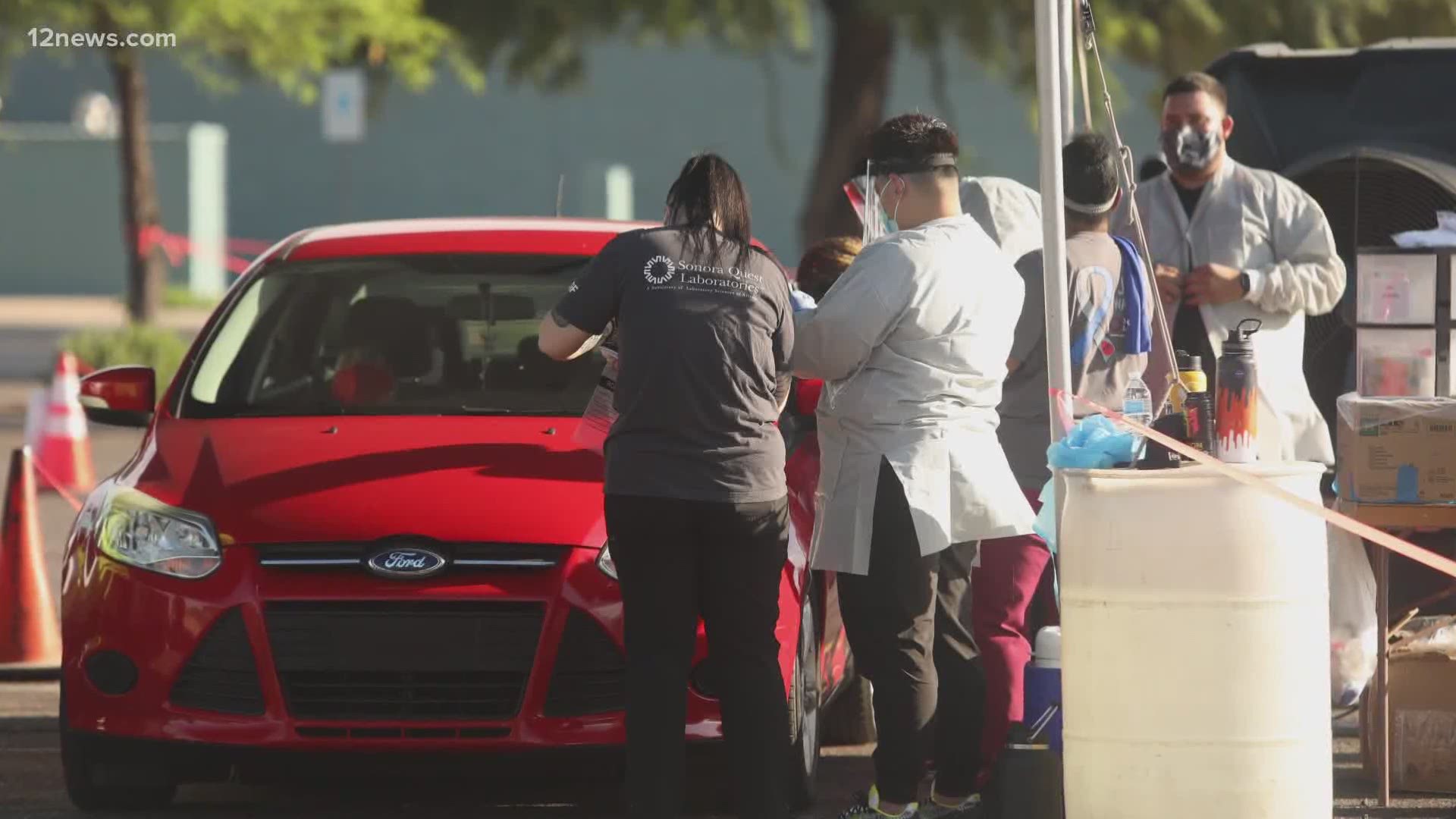PHOENIX — Arizona continues to see record-breaking days for the number of coronavirus cases reported. Testing sites have been packed with lines backing up for hours.
Recent analysis by the Harvard Global Health Institute says Arizona still is lagging behind on testing by tens of thousands of tests per day.
In a report first published by NPR, the study lays out two thresholds for tests. One to help mitigate the spread of the virus and the other threshold to suppress the virus.
Arizona does not come close to either threshold.
According to the data, from June 23 to June 29, Arizona averaged 11,662 tests per day.
To start mitigating the virus, the study found Arizona would need to test 74,135 people per day. For suppression, Arizona would need to test more than 200,000 people per day.
Arizona is currently a hot spot in the United States for coronavirus cases.
Yvette Toledo felt the struggles of getting a test first hand.
“It does not feel like this is a modern healthcare system we are in,” Toledo said.
She was caught in a bind, after her ex-husband called saying he had tested positive for coronavirus and exposed her two children to the virus.
“He got on the phone and I got on the phone and we started making calls,” Toledo said.
What they found was hurdle after hurdle, with test sites filled up or restrictions on who could be tested.
When Toledo found a location, they would sit in line for three hours.
Her son would test positive, joining the nearly 80,000 Arizonans diagnosed with coronavirus. Toledo said thankfully his symptoms have been mild.
However after the hurdles she faced, Toledo said she believes the numbers of those infected are even higher.
“With that much of a barrier to getting tested, I can’t fathom everyone getting sick is getting tested,” Toledo said.
"It just means the virus is unchecked," Dr. Matt Heinz, a hospitalist with the Tucson Medical Center said.
Heinz has watched as hospital beds there have filled up to record levels, but still he said the hospital is struggling to get the needed rapid response tests. The lack of rapid tests means an inefficient use of limited resources.
“It feels so strange to be on the front lines with these amazing colleagues I work with and not know where the enemy is," Heinz said.

